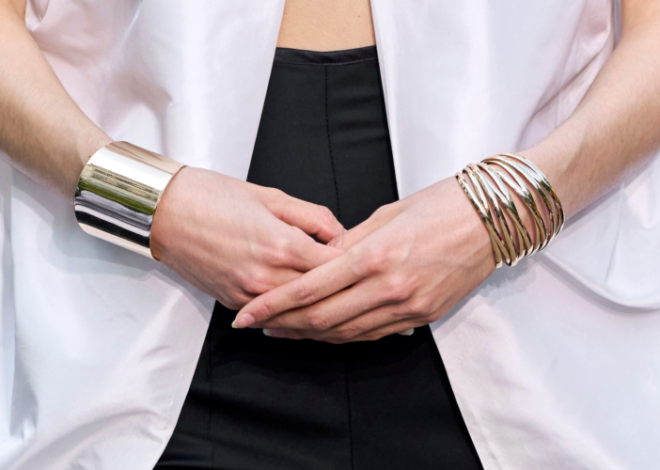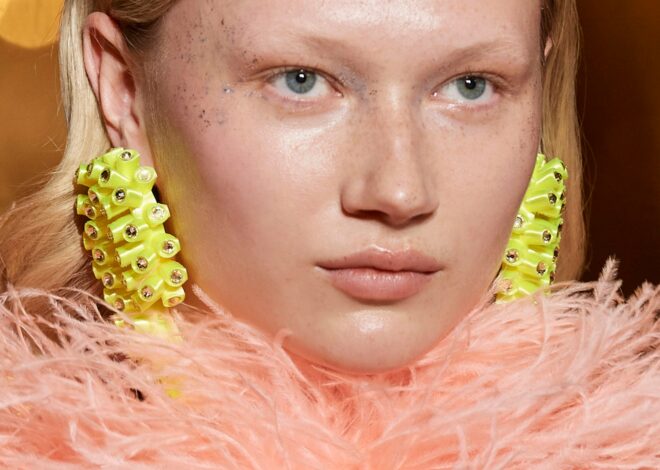
What Is Microneedling? Here’s What You Need to Know
- Being Outside Is Good For Your Body and Mind — Here’s Why - December 14, 2023
- The Chicest Bracelets for Women (All Under $100) - December 14, 2023
- Water Is Life — Here Are 11 Simple Ways to Drink More of It - December 14, 2023
With the help of skin experts, we answer all of your burning questions about the bloody — yet popular — skincare procedure, including whether it’s safe for all skin types and what products to use post-procedure.
At first glance, microneedling could seem downright medieval: A doctor scoring your skin with, well, scores of needles. But the beauty industry has regularly revisited the resurfacing technique, which originated in the mid-’90s, hoping to eliminate unpleasant side effects such as pain, bleeding and serious downtime.
The Dermapen, one of the most well-known microneedling devices, heralded the treatment’s slow creep back into the spotlight in 2010. But now microneedling’s makeover is complete, delighting needlephobes and laser fans alike, thanks to innovative combination treatments that minimize discomfort and maximize results.
How does microneedling work?
Jabbing the skin with needles admittedly sounds counter-intuitive, but consider that the needles are teeny (think acupuncture-thin, but much shorter) and microneedling is based on the same concept as a fractionated laser, which creates a controlled injury that the surrounding skin then swoops in to repair. The result: Fresh, new collagen production.
“Microneedling started this idea even before lasers,” says Dr. Diane Wong, owner and medical director of Toronto’s Glow Medi Spa. But pros like Wong are calling the recent marrying of microneedling and radiofrequency energy (RF) a game changer. Because the tiny needles penetrate the skin, topical RF can reach the deeper layers to better rejuvenate. “Combining these two technologies allows the energy to be delivered very directly,” says Manhattan cosmetic dermatologist Dr. Paul Jarrod Frank.
“Microneedling creates tiny channels for better product penetration,” says Jamie Sherrill, founder of the Nurse Jamie brand and owner of Beauty Park Medical Spa in Santa Monica. “We microneedle as part of our Bloodless Anti Vampire Facial and then infuse targeted skincare.” Hyaluronic acid and plant-based growth factors are used for anti-aging, while ingredients like kojic acid treat pigmentation issues, and azelaic acid and anti-inflammatory agents target redness. “We really get dramatic results with it,” she says, adding that the spa is a hit with male celebrities and young female celebrities alike for its conservative, 360-degree approach to treatments.
To that end, Sherrill devised the Nurse Jamie Beauty Stamp, a new-and-improved OTC microneedler, which clients are sent home with, that’s quashing the dermaroller competition. Far from scary, it requires a double-take to even see the needles on it. “The needle depth is .25, the shallowest, and the needles go in vertically rather than at an angle, which can tear the skin. I have every tool at my disposal and I use this at home before applying my serum,” she says.
What are the benefits of microneedling?
The benefits of microneedling range from youthful contours and fewer fine lines, to refined pores, improved texture and diminished acne scars. For the hybrid technology, Frank’s go-to is the Infini. The machine has a disposable tip with 49 microneedles, which puncture the skin, reach the desired depth and then deliver a pulse of RF energy. “It’s like a square stamp and the tip is moved over the face in a stamp-like motion. You’re getting the tightening of ultrasound and the resurfacing of Fraxel,” he says.
Meanwhile, at Glow Medi Spa’s flagship in Yorkville and location in Aurora, Ont., VoluDerm, a hybrid of microneedling, radiofrequency and galvanic energy, has become the lunchtime fave of professional women nearby because the half-hour treatment creates an instant glow, in addition to long-range improvement. In this case, the RF assists in the needle penetration before the two energies are emitted, with the galvanic energy working to minimize discomfort by altering the skin’s pH.
“There’s no bleeding and limited discomfort because there’s very little involvement in the epidermis,” Wong says. “The activity is happening deeper in the dermal layer of the skin.” Even those who typically fear needles are becoming fans. “Some clients won’t do Botox, but they love these treatments,” she says.
Results with VoluDerm and Infini, however, aren’t as instant as Botox. Collagen production gradually increases in the following months and most patients see a more visible improvement by the second treatment (a series of three to six is generally recommended). Post-treatment effects range from mild 24-hour swelling and redness to a gradual exfoliation.
Is microneedling safe for all skin types?
For some skin tones, particularly darker ones, microneedling can be safer than lasers. “Lasers can give more dramatic effects in a shorter amount of time, but they can cause issues,” says nurse and aesthetician Natalie Aguilar of Afterglow Beverly Hills. “The skin can end up appearing waxy and, when you look at it closely in the glare of the sun, you can sometimes see circles or squares imprinted from the laser’s grid.”
Some clients complain of hyper- and hypo-pigmentation from lasers, she adds. Microneedling also allows pros to zero in on delicate spots that cannot easily be treated with lasers — like crepiness beneath the eyes and lip lines in the dynamic area around the mouth. “The collagen boost you get with multiple treatments is comparable to that of a laser,” says Aguilar, who customizes treatments using a MicroPen and combines super-fine microneedling with topical RF as part of her All-In Afterglow Red Carpet treatment. (It was such a hit pre-awards season that it’s been added to the menu year-round.)
One key reason for its success: The glow-inducing treatment, with its skin-drenching hyaluronic-acid-mineral mask and lengthy oxygen blast, takes advantage of one of microneedling’s biggest benefits, which is enhancing ingredient delivery.
In a spin on vampire facials, Glow Medi Spa added platelet-rich plasma (Selphyl) to the VoluDerm procedure. “We draw some of the client’s blood, centrifuge it in office and then massage on the remaining platelets and plasma to stimulate growth factors within the skin,” says Wong, adding that it diminishes any swelling and redness, and improves results. “Once clients do their face, they want to do their hands, arms and knees.”
After a microneedling procedure, it’s important to avoid any activities that will heat up the skin for a few days, such as going in a hot tub or sauna, taking a hot shower or engaging in strenuous exercise. Physical and chemical exfoliants should be avoided for one week post-treatment, and dermatologists recommend sticking to ultra-gentle cleansers and moisturizers, to aid in skin’s recovery.
Shop some of the best post-microneedling skincare products below.
Cetaphil Gentle Skin Cleanser
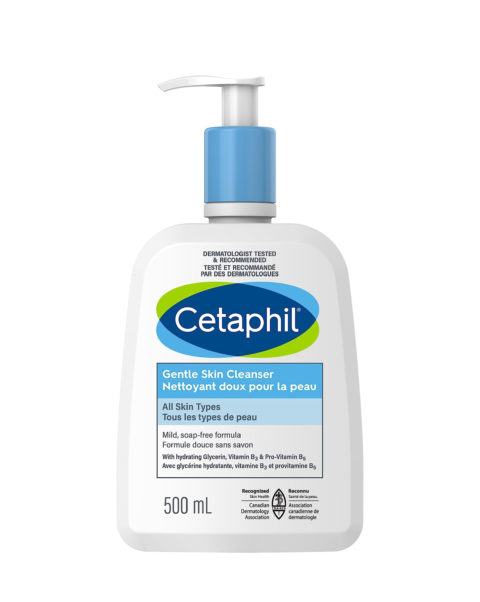
The dermatologist-recommended, fragrance-free and anti-irritation cleanser is a must after any invasive or non-invasive procedure.
Marcelle Ultra-Gentle Cleansing Gel
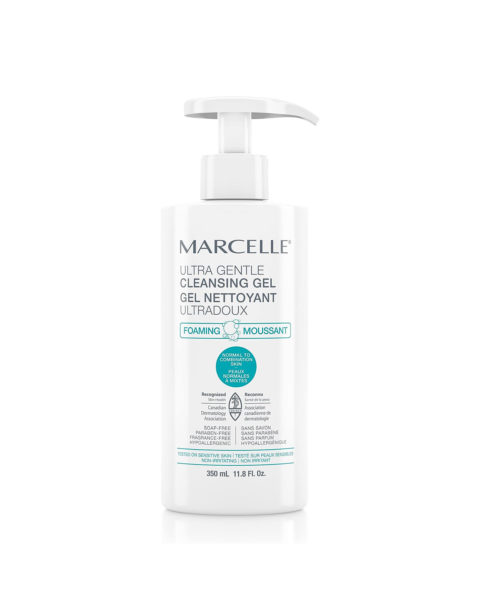
Hypoallergenic? Check. Soap-Free? Yup. Fragrance-Free? Obviously. Tested On Sensitive Skin? Check, check, and check.
CeraVe Hydrating Cleanser
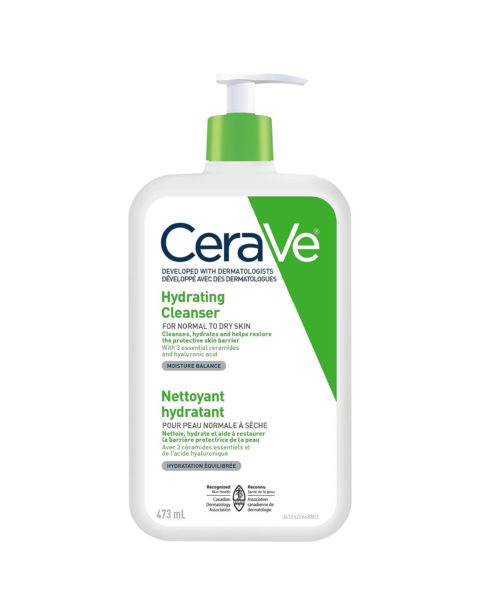
The TikTok-famous cleanser has a lotion-like consistency that your healing skin will love and thank you for.
Neutrogena Oil-Free Face Moisturizer for Sensitive Skin
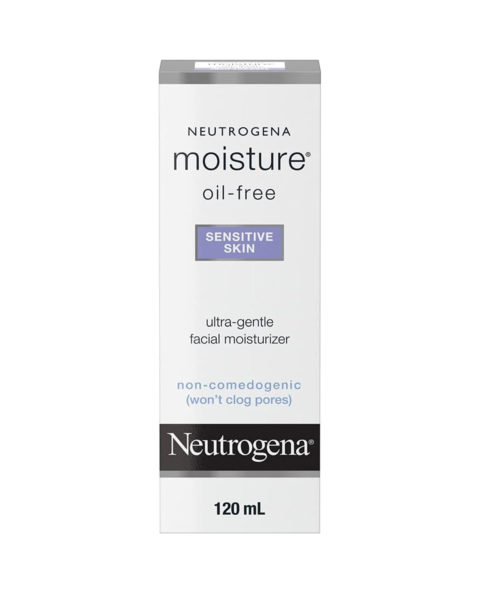
In the week following a microneedling procedure, look for products labeled “for sensitive skin.” This will ensure you’re protecting your, well, newly sensitive skin from irritation and adverse reactions.
Embryolisse Lait Crème Concentrate
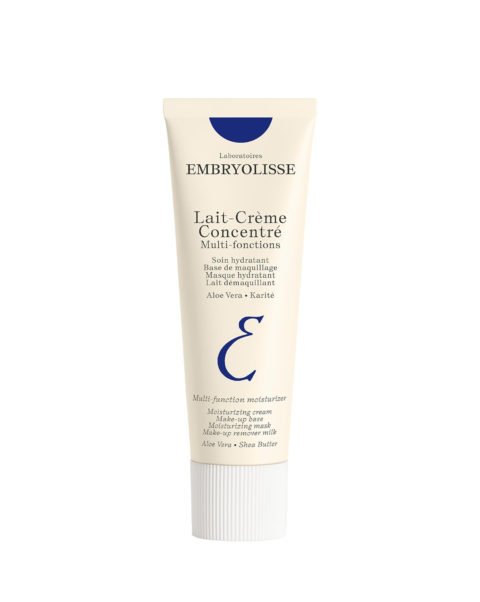
Formulated with shea butter and beeswax, this hydrating cream lotion will add the moisture your skin needs, without any potentially disruptive bells and whistles.
Aveeno Calm and Restore Oat Gel Facial Moisturizer for Sensitive Skin
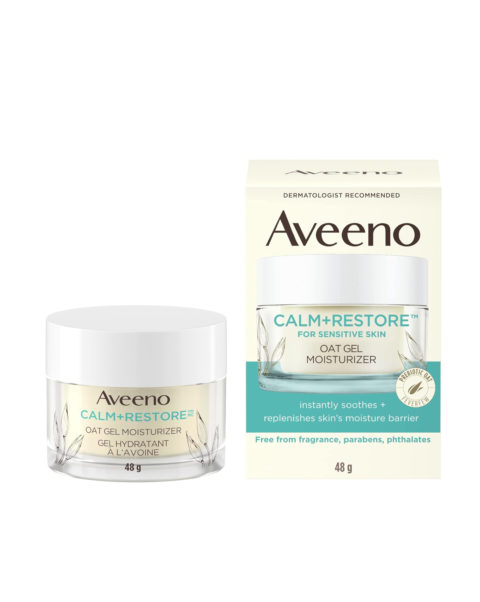
This lightweight gel formula will leave your skin feeling moisturized and calm, while ingredients like oat kernel flour and extract will deliver the soothing benefits your skin needs to recover.
This article contains affiliate links, so we may earn a small commission when you make a purchase through links on our site at no additional cost to you.
